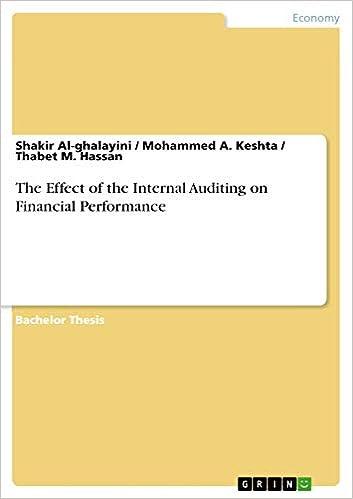Question
Convertible Preferred Stock, Convertible Bonds, and EPS Francis Company has 14,400 shares of common stock outstanding at the beginning of 2013. Francis issued 1,800 additional
Convertible Preferred Stock, Convertible Bonds, and EPS
Francis Company has 14,400 shares of common stock outstanding at the beginning of 2013. Francis issued 1,800 additional shares on May 1 and 1,200 additional shares on September 30. It also has two convertible securities outstanding at the end of 2013. These are:
Convertible preferred stock: 1,500 shares of 8.5%, $50 par, preferred stock were issued on January 2, 2010, for $55 per share. Each share of preferred stock is convertible into 3 shares of common stock. Current dividends have been declared and paid. To date, no preferred stock has been converted.
Convertible bonds: Bonds with a face value of $150,000 and an interest rate of 5.5% were issued at par in 2012. Each $1,000 bond is convertible into 20 shares of common stock. To date, no bonds have been converted.
Francis earned net income of $65,000 during 2013. The income tax rate is 30%.
Required:
1. Compute the number of shares of common stock that Francis should use in calculating basic earnings per share for 2013.
Weighted average shares outstanding: 15,900 shares
2. Calculate basic earnings per share for 2013. If required, round your answer to the nearest cent.
Basic earnings per share: $ 3.69
3. Calculate diluted earnings per share for 2013 and the incremental EPS of the preferred stock and convertible bonds. If required, round your answers to the nearest cent.
Diluted earnings per share: $???
| Incremental earnings per share | |
|---|---|
| Bonds: | $ ??? |
| Preferred: | $ ??? |
4a. Assume the same facts as above except that net income included a loss from discontinued operations of $21,000 net of income taxes. Compute basic EPS. You do not have to calculate diluted EPS for this case. If required, round your answer to the nearest cent. Basic earning per share: $ ???
| 4b. Show how the basic EPS you calculated should be reported to shareholders. You do not have to calculate diluted EPS.
| ||||||||||||||||||||||||||||
Step by Step Solution
There are 3 Steps involved in it
Step: 1

Get Instant Access to Expert-Tailored Solutions
See step-by-step solutions with expert insights and AI powered tools for academic success
Step: 2

Step: 3

Ace Your Homework with AI
Get the answers you need in no time with our AI-driven, step-by-step assistance
Get Started


